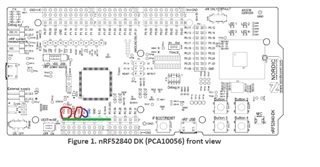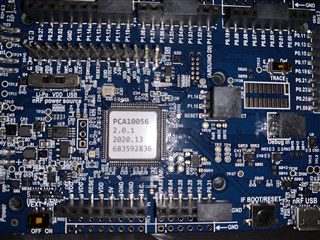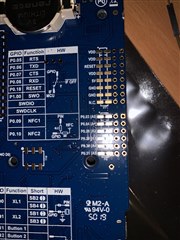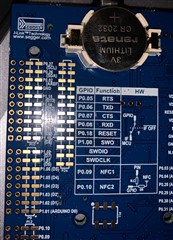Hi All,
I am trying to use the saadc example given in nRF5_SDK_17.0.0_9d13099\examples\peripheral\saadc.
I have built the project and now I want to read some values from some voltages from one of the output pins in nRF52840 DK.
As suggested https://infocenter.nordicsemi.com/topic/com.nordic.infocenter.sdk5.v15.0.0/nrf_dev_saadc_example.html
(**To use VCC. In the hardware I see only VDD pins. Is it the same?) in
I tried to connect A0 pin to VDD (There are three VDD) pins however, value I read is,
<info> app: SAADC HAL simple example started.
<info> app: ADC event number: 0
<info> app: 19
<info> app: 19
<info> app: 18
<info> app: 19
<info> app: 17
However, if I connect to the 5V pin, I read,
<info> app: ADC event number: 22
<info> app: 559
<info> app: 560
<info> app: 559
<info> app: 560
<info> app: 559
Is it possible to know, why there is no output from the VDD pins? What is the expected voltage output of this pin?
Should I configure anything in the hardware?
Also is it ok to connect the 5V pin to the A0 pin?
Thanks a lot!!






